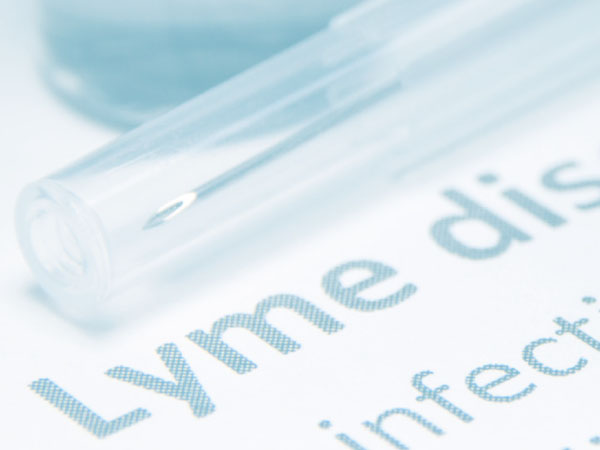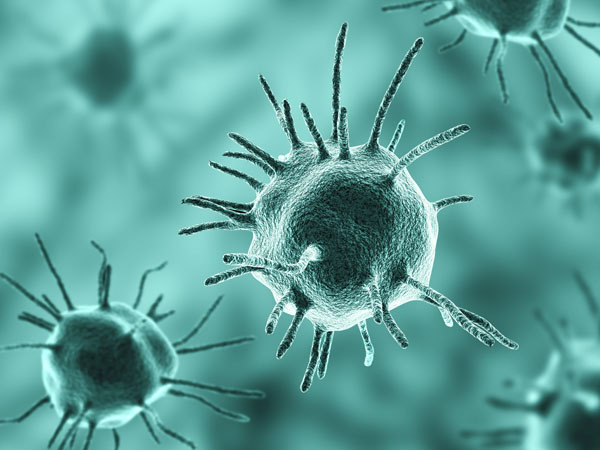
Dr. Amauri Wellness Centre, based in Toronto, Ontario, Canada, has announced that they are offering a program for Lyme disease treatment in Toronto with an integrative functional medicine approach. The program is led by Dr. Amauri Caversan, ND and Arv Buttar, NP. The protocols that they use are designed to help boost the immune system, eradicate infection, and enhance detoxification. These integrative medicine treatments may help in reducing joint pains, fatigue, neurologic symptoms, brain fog, and other symptoms of Lyme disease.
Lyme disease involves the inflammation of various organ systems in the body. It can affect the joints, nerves, skin, and heart. It is the result of an infection by the Borrelia bacteria and this infection is transmitted through the bite of Ixodes ticks. Ixodes scapularis is known as the deer tick or the blacklegged tick, which is a small hard tick that can attach itself to any part of the body. Ticks have to remain attached to the body surface for 36 to 48 hours in order for humans to get infected and develop Lyme disease. Ixodes ticks typically attach themselves to the armpits, groin, and scalp.
Lyme disease in humans is mostly caused by bites from immature blacklegged ticks, known as nymphs. They are normally less than 2 mm in size and are difficult to see. While adult blacklegged ticks can also carry Lyme disease, they can easily be seen and removed, which is why most infections come from the bites of nymphs. It should be noted that nymphs are usually active in the spring and summer seasons.
They also describe the three stages of Lyme disease infection, its symptoms, diagnosis, prevention, and natural treatment. The three stages are the:
Early-localized disease stage - Where the tick bite, which looks like a bull’s eye and is known as erythema migrans (EM), is evident; and the infection has not propagated throughout the body. Early-localized disease stage symptoms may also include: flu-like symptoms(chills, sore throat and fever), headache, sore muscles, fatigue, stiff neck, joint pain and enlarged lymph nodes.
Early-disseminated disease stage - Happens days to weeks after the bite and EM is now seen in various parts of the body. In addition to the flu-like symptoms patients may experience pain, weakness or numbness in the arms, legs, vision changes, cardiovascular and neurologic symptoms.
Late Lyme disease stage - Happens months or years after the initial infection and is accompanied by persistent fatigue, intermittent joint pains, joint arthritis, severe headaches/migraines, cardiovascular issues, travelling pains that come and go in the joints/tendons, concentration issues, mental fogginess, numbness in the arms, legs, hands or feet, vertigo, dizziness, stiff neck and insomnia.
The usual symptoms of Lyme disease include those that are similar to that of the flu, such as fever, body weakness, chills, headache, joint pain, and lethargy. The typical lesion, which is the EM, looks like a red, bull’s-eye-like plaque that may have central clearing and concentric rings. The EM may become as large as 5cm or more and it may become a fluid-filled lesion or a bulla, with surrounding vesicles.
Lyme disease may also cause radiculopathy or neuropathy in humans, which are experienced as weaknesses and tingling sensations of a body part. It may also result in cardiac disease, such as a heart block that may result in fainting. Chest pain and palpitations may also be experienced.
Diagnosis of Lyme disease may be through the presence of the EM, a history of exposure to ticks, and the patient living in an endemic area. However, not all patients report a tick bite. Diagnosis may be difficult because Lyme disease is often misdiagnosed with other illnesses. Nevertheless, laboratory diagnosis is possible via a two-tiered serology testing, which looks for antibodies that are related to Lyme disease.
Lyme disease treatment consists of providing relief for the symptoms, halting the progression of the disease, and offering supportive care for cardiac and neurologic manifestations. Antibiotics, such as doxycycline, may often be used. In addition, herbal treatments may also be used as discussed in their latest article.
Those who plan to consult with Dr. Amauri Caversan ND or Arv Buttar, NP, regarding Lyme disease treatment may want to check out their website, or contact them on the phone (416) 922-4114 or through email at info@dramauriwellnesscentre.com, or visit their Toronto naturopathic clinic located at the heart of Yorkville.
from Press Releases
https://www.pressadvantage.com/story/39276-lyme-disease-treatment-in-toronto-now-available-at-the-dr-amauri-wellness-centre
Dr. Amauri Wellness Centre
Dr. Amauri Caversan ND
1200 Bay Street #1102
Toronto, ON M5R 2A5
(416) 922-4114
https://dramaurinaturopath.com
Like us on
Facebook
Follow us on
Twitter
Connect with us on
LinkedIn


